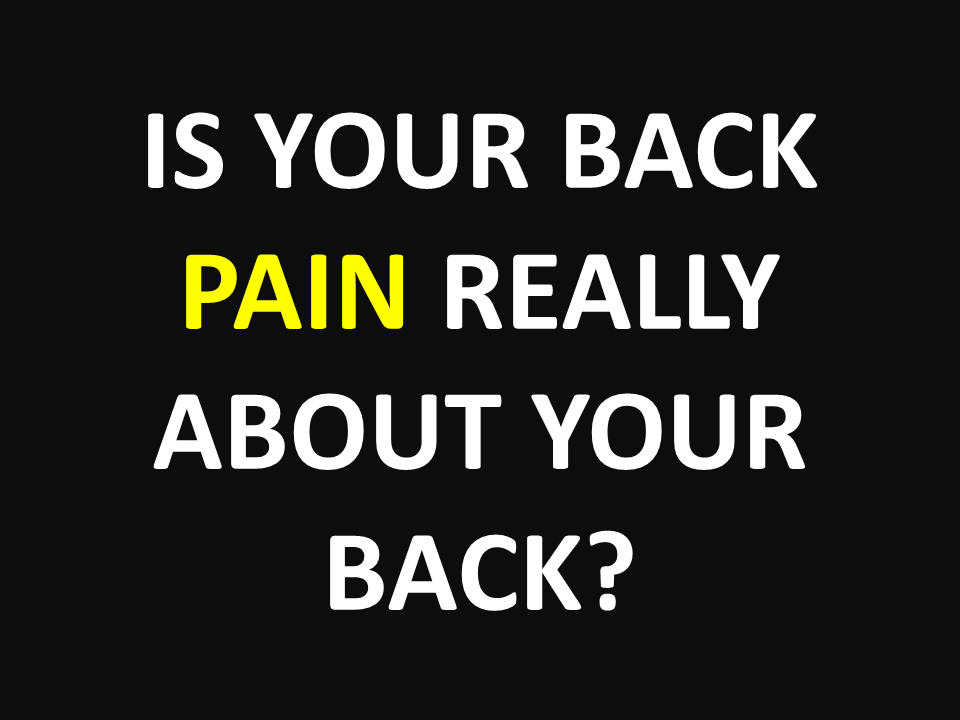Eighteen years ago I had my first conscious exposure to the mind-body connection.
That year I suffered the miscarriage of my first pregnancy.
Although I was only 11 weeks along, and it was explained to me how common miscarriages are, I was still emotionally devastated.
And because of the miscarriage, I needed to undergo an operation.
Being in that hospital room, awaiting the surgery, I was feeling sad about what happened, and stressed about what was about to happen.
And I also noticed that my then-husband was extremely anxious.
He didn’t like hospitals, and was going through similar emotions related to the loss of the pregnancy.
So, the nurses came in and prepped me for surgery, and just as they were wheeling me out the door, he collapsed.
His back gave out on him, and he was in pain. He couldn’t even stand up.
So, all the attention that had been on me was now on him.
They helped him into the bed next to mine, and tried to make him comfortable.
I was confused about what was happening.
It didn’t occur to me at the time that his pain was actually an emotional reaction to this difficult emotional experience.
But in the days following that event, I realized what had happened.
And it honestly put a lot of things I had readily believed into question.
I became really curious about this very real connection that exists between our psychology (mind) and our physiology (body).
Then, just so fate could really hit the point home, I experienced a similar incident in the first months of starting my business.
I was just sitting in my chair in front of my computer, and then I was on the floor, unable to get up. My lower back was in spasm and it was excruciating.
The intense pain only lasted a couple of minutes, but the lingering pain lasted for a long while.
Now, I understand that both these personal examples relate acute back pain to stress.
But I’ve since discovered that chronic or recurring pain may also be related to our emotions.
In reading more about this MIND-BODY connection in relation to the lower back pain in particular, I found out that 70% of us will experience chronic or recurring pain in the lower back at some point in our lives.
Amazingly, for 80 to 90% of us, this lower back pain will be non-specific, meaning there will be no structural or disease-related reason for it.
And because there appears to be no physical root of the problem, could the pain be a physical manifestation of what we’re experiencing psychologically, like stress or heavy emotions?
The answer to this question is yes, according to the work of Dr. John Sarno.
I came across the work of Dr. Sarno when I heard about a book he wrote, called “Healing Back Pain: The Mind-Body Connection.”
In it, he explains that tension in the mind, such as stress, can affect the muscles, nerves, and connective tissue of the body, especially in the neck, shoulders, back, butt, hips and limbs.
He calls this condition TMS, or Tension Myoneural Syndrome.
Through his work in the past 50 years, he has helped heal thousands of people with chronic or recurring pain, and he believes that pain is actually a distraction, or cover up, for unresolved emotions like anger.
So what types of people, you may wonder, are most likely to be covering up anger?
Dr. Sarno says it’s those who put the most pressure on themselves. Namely perfectionists, people pleasers, worriers, and harsh self-critics.
Ouch!
I recognize a couple of these traits in myself.
Another interesting point is that even when structural abnormalities are found in the approximate area of the pain, such as a herniated disk or an unusual curvature of the spine, that doesn’t automatically mean it’s the cause of the pain.
Woah. That’s a hard pill to swallow for most of us.
As humans, we appreciate logic and generally feel better knowing there’s a physical cause to our physical pain.
But clearly in the personal cases that I shared, the physical pain had no physical cause.
It was back pain brought on by a build-up of emotion that needed to express itself… And it did. Loud and clear.
So, if it’s true that a lot of our pain is an outlet for repressed emotion, how can we alleviate the pain and help ourselves heal?
Here are some simple things you can do:
Get Informed
The first thing I would suggest is reading more about this MIND-BODY connection, especially if this is a new concept to you.
Dr. Sarno has a few books out there which may help you understand this phenomenon. Also, one book I’ve mentioned in my blog a few times, because it’s so good, is Bruce Lipton’s “The Biology of Belief”
As the evidence of the MIND-BODY connection becomes clear, it’s becoming more accepted and understood, and there is more and more reputable information out there.
Journal
Write about your pain. By that, I mean document it when it occurs, and note its location and intensity. Doing this will increase your own body awareness and allow you to understand what may really be at work.
Also, consider listing the things in your life that cause you emotional distress. Then look at each one and decide on an action you can take to help resolve or lessen the impact of it in your life.
Talk
If you can talk about your pain to someone you trust, or even talk yourself through a stressful time, you may help avoid or alleviate physical pain.
But if the emotional pain is too great, it may be helpful to find a psycho-therapist who can help you face and resolve what’s buried deeper.
Breathe
Through yoga, I learned to use deep belly breathing to help me zoom out of the details of my stress.
The thing about breathing is that it’s primal, it IS life.
When you allow yourself to focus on this life force, you realize how small everything else is in comparison, including what’s stressing you.
Although breathing won’t eliminate the emotional root of physical pain, it can provide temporary relief. And, with regular practice, focused breathing can potentially prevent trigger situations from producing painful emotions in the future.
Move
Moving your body has been studied, and it’s been demonstrated to be a powerful way to help get relief from pain.
But many times, when we experience pain, we allow fear of further pain to stop us in our tracks, and we avoid moving.
The truth is that unless the pain is acute, we need to move. We were designed that way.
The thing is, when we stop moving out of fear of more pain, our bodies don’t function as they should and we can actually perpetuate physical dysfunction and induce a state of depression. And depression then begets more pain and suffering. And then we’re even less motivated to move…
It can become a vicious circle.
Instead, find small and gentle ways to move, do things you enjoy, even go for a massage to alleviate the pain temporarily to help you get moving.
Chronic and recurring back pain is common these days, and in fact it’s the leading cause of disability among people under 45.
However, with all we’re learning about the brain and the emotional link to our bodies, we’re beginning to understand what triggers pain, and more importantly, what can heal it.
And my hope is, in just a few years from now, that the mind and body will be fully integrated within the health system, and not treated as two separate domains.
Keep moving. Onward!
Debbie
P.S. On Monday, I’ll post a video on my FB Page of a short, daily yoga practice you can use to keep the back mobile.
P.P.S. Outdoor Yoga begins this Tuesday, June 27th, at 9am at Charbonneau Park in Rosemere… weather permitting 🙂
Also, you can join me at any time for Boot Camp on Mondays and Evening Yoga on Thursdays… all the info is on my “Classes” Page 🙂



Thanks for this Debbie.I will make sure Jeff reads it even thou he is fully aware of the connection…..really looking forward to the the yoga stuff u will suggest:)
It’s definitely worth it for Jeff to look into Dr. Sarno’s books. There are also some YouTube videos with him being interviewed… very interesting stuff!